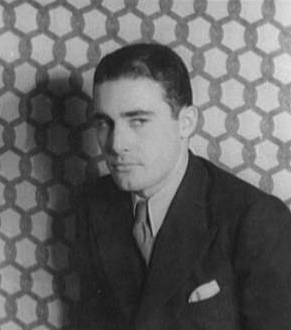Discover Your Roots
SIGN UPDiscover Your Roots
SIGN UPKhaled is a male name of Arabic origin that signifies "Eternal." It is linked to Khaled, the general of the first Caliph Abu Bakr. The name has historical significance and is commonly associated with individuals of prominence in various fields. Khaled Azhari, an Egyptian politician, and Khaled Jarrar, a Palestinian visual artist, are among those who bear this name. Additionally, the name is associated with cultural works such as the self-titled album by Algerian musician Khaled and the Canadian drama film "Khaled." The name Khaled is deeply rooted in Arabic heritage and carries the powerful connotation of eternity, making it a meaningful and significant choice for male individuals.

Major-General Khaled Nezzar (Arabic: خالد نزّار; 25 December 1937 – 29 December 2023) was an Algerian general and a prominent member of the High Council of State of Algeria. Born in the douar of Thlet, in Seriana in the Batna region, Nezzar's military career began as a member of the French army, where he received training at the Strasbourg military school in Algiers. Following Algeria's independence in 1962, he continued his service in the new Algerian army, rising through the ranks. Notably, he was involved in various military and political roles, including serving as Minister of Defense in July 1990 and being a member of the High Council of State. Nezzar also published his memoirs in 1999. His personal life was marked by controversy, including his son's altercation with a reporter and legal disputes. Nezzar passed away in Algiers on 29 December 2023 at the age of 86. His legacy is remembered in the context of his significant contributions to Algeria's military and political history.

Khaled Abdul-Wahab, also known as the 'Tunisian Schindler', was a Tunisian Arab Muslim man who demonstrated immense courage and compassion during the Holocaust. Born into a wealthy aristocratic family, Abdul-Wahab utilized his connections and bravery to save numerous Jewish families from persecution by the Nazis in Vichy-controlled Tunisia. Risking his own safety, he sheltered families, including the Boukhris and Ouzzan families, totaling 25 people, on his family's farm for four months until the Nazi occupation ended. In another instance, he protected nearly two dozen individuals, including 13-year-old Eva Weisl, by providing them with lodging and hiding them from German soldiers. Despite the Germans' awareness of the hidden Jews, Abdul-Wahab's unwavering determination and quick thinking ensured their safety. His heroic acts were brought to light by Robert Satloff, a researcher dedicated to uncovering stories of Arabs who saved Jews during the Holocaust. Despite initial challenges in being recognized as "Righteous Among the Nations" by Yad Vashem, Abdul-Wahab's selfless actions exemplify the extraordinary courage and compassion displayed during one of history's darkest periods.

Khaled Al-Khalidi, born on February 14, 1965, is a well-known Saudi Arabian athlete. He gained recognition for his participation in the men's shot put at the 1992 and 1996 Summer Olympics. Throughout his career, Khaled Al-Khalidi showcased exceptional skills and dedication to his sport, leaving a lasting impact on the athletic community. His remarkable achievements have solidified his status as a respected figure in the world of sports. To learn more about Khaled Al-Khalidi's athletic journey, you can refer to the official World Athletics and Olympedia platforms.

Khaled Al-Faraj, born on January 19, 1970, is a retired Greco-Roman wrestler hailing from Syria. He made a mark in the wrestling world by representing his country in multiple Olympic Games. At the 1988 Summer Olympics, he competed as a light flyweight (-48 kg) and secured an impressive 5th place. He further showcased his prowess at the 1992 and 1996 Olympics as a flyweight (-52 kg), finishing in the 11th and 15th positions, respectively. Notably, Al-Faraj etched his name in history as the sole Syrian athlete to clinch a medal at the World Wrestling Championships, achieving a bronze in 1998 in Gävle, Sweden at 54 kg. His remarkable achievements have solidified his legacy in the world of Greco-Roman wrestling. For more detailed information, you can refer to his Sports-Reference profile and International Wrestling Database profile.

Khaled Lounici, born on July 9, 1967, is a former Algerian professional football player and manager. He is best known for his time with USM El Harrach. Lounici proudly represented Algeria in two significant tournaments, the 1996 African Nations Cup and the 1989 FIFA Futsal World Championship. His contributions to the sport have left a lasting impact. For more information, you can refer to his FIFA profile at fifa.com and also visit the rsssf for additional details.
All images displayed on this page are sourced from Wikipedia or Wikimedia Commons.We use these images under their respective Creative Commons or public domain licenses. Wherever applicable, author attributions and license information are provided. If you believe an image is used incorrectly or outside its license terms, please contact us so that we can review and correct the issue.